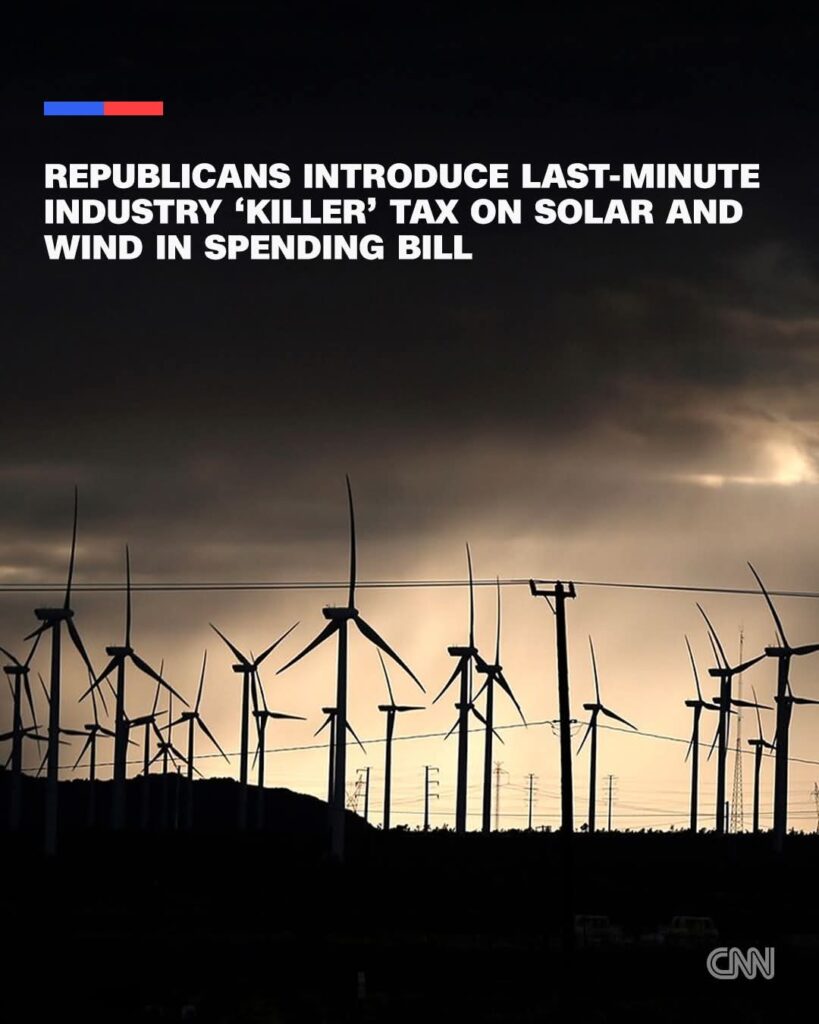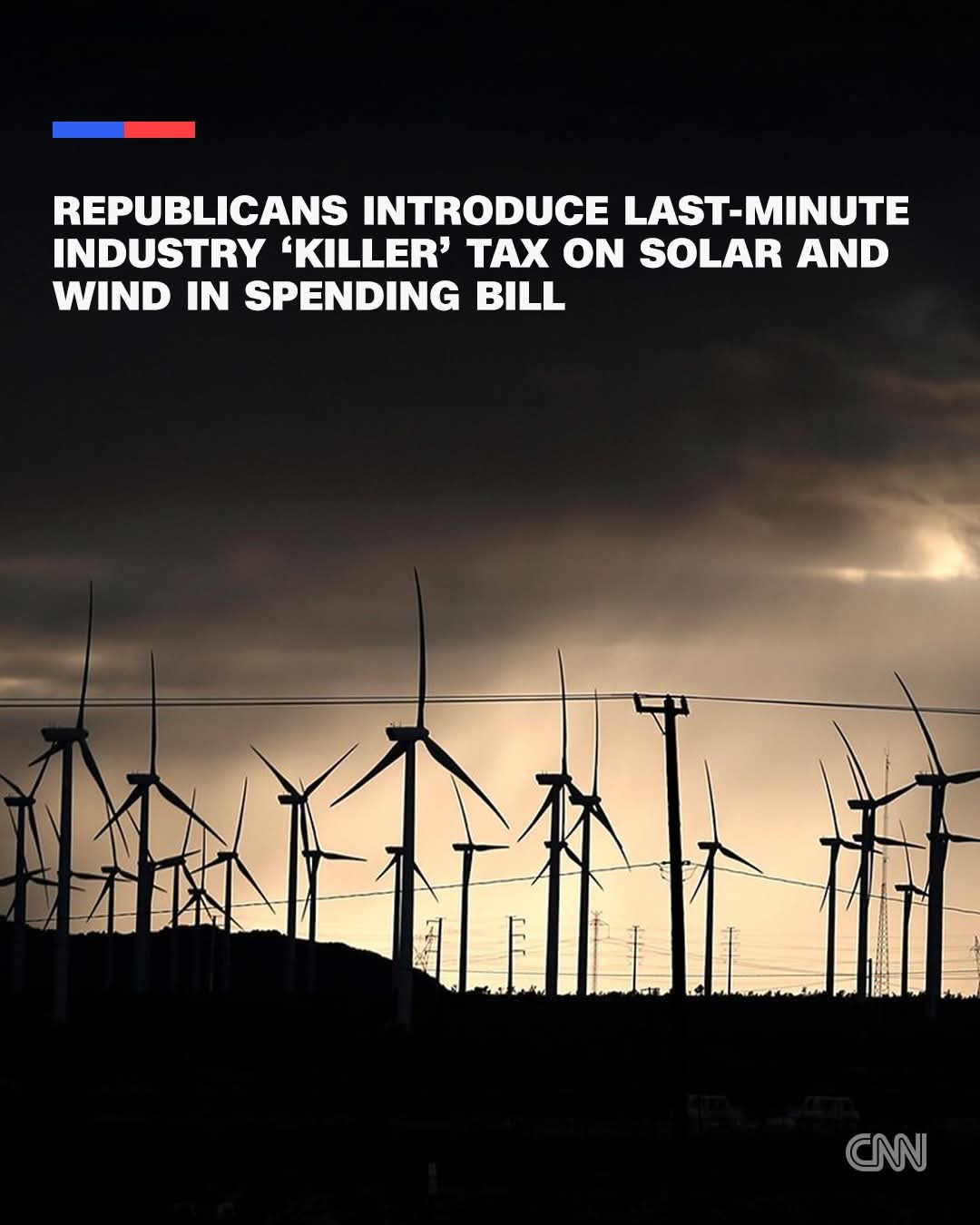
Republicans introduce last minute industry “killer” tax on solar and wind in spending bill
The bill phases out tax credits for wind and solar by end of 2027, pushing from prior timelines (2028 or later) .
It introduces a new excise tax on solar/wind projects that use components from “prohibited” foreign sources (notably China), and applies to projects starting construction after June 16, 2025, or placed in service after 2027 .
Analysts estimate this could raise project costs by 10–20%, and kill 57–72% of planned clean-energy projects over the next decade .
📌 Who’s Furious & Why It Matters
💼 Business Groups
U.S. Chamber of Commerce: Neil Bradley warns “taxing energy production is never good policy… this tax will increase prices. It should be removed” .
Building Trades Union: Describes it as possibly “the biggest job‑killing bill in the history of this country,” threatening 1.75 million construction jobs and $148 billion in wages .
🌱 Clean-Energy Developers & Experts
Sen. Ron Wyden (D‑OR): Says it’s “a death sentence” for U.S. wind and solar .
Solar Energy Industries Association: CEO calls it “a direct attack on American energy, American workers and American consumers,” warning of higher bills, fewer jobs, and more blackouts .
Environmental groups (e.g., Evergreen Action): Forecast higher utility prices and “torched” future infrastructure .
Industry analysts (Rhodium Group): Say the excise tax will suppress solar/wind installations by 57–72% through 2035 .
😡 Even Fossil-Fuel Supporters Are Upset
Alex Epstein, a pro-coal advocate, opposed the excise tax as “definitely not something I would support” .
⚠️ Broader Implications
- Higher energy costs — Clean‑energy taxes expected to raise consumer utility bills by ~8–10% .
- Investment pullback — Many planned solar projects may be shelved or delayed, shrinking the clean-energy pipeline .
- Strategic setback — Reduces U.S. competitiveness in renewables, possibly ceding ground to China .
- Potential policy undoing — Moderate Republicans (e.g., Sens. Murkowski, Ernst, Tillis) are pushing amendments to restore more flexible tax credit eligibility and remove the excise tax .
🧭 Why It’s a Big Deal
The provision isn’t just a minor tweak—it reflects a major policy shift from accelerating the clean-energy transition to subsidizing traditional energy sources (coal, nuclear) and penalizing renewables. This reversal comes as the U.S. confronts surging electricity demand—driven by AI, data centers, and electrification efforts—that clean energy is best positioned to meet .
✅ What to Watch
Senate amendments under consideration during “vote‑a‑rama” that could overturn or soften these provisions .
Whether the final reconciled bill retains these burdensome provisions ahead of a likely July 4 target deadline .
The impact on clean‑tech investment, electricity prices, and future U.S. energy strategy.
